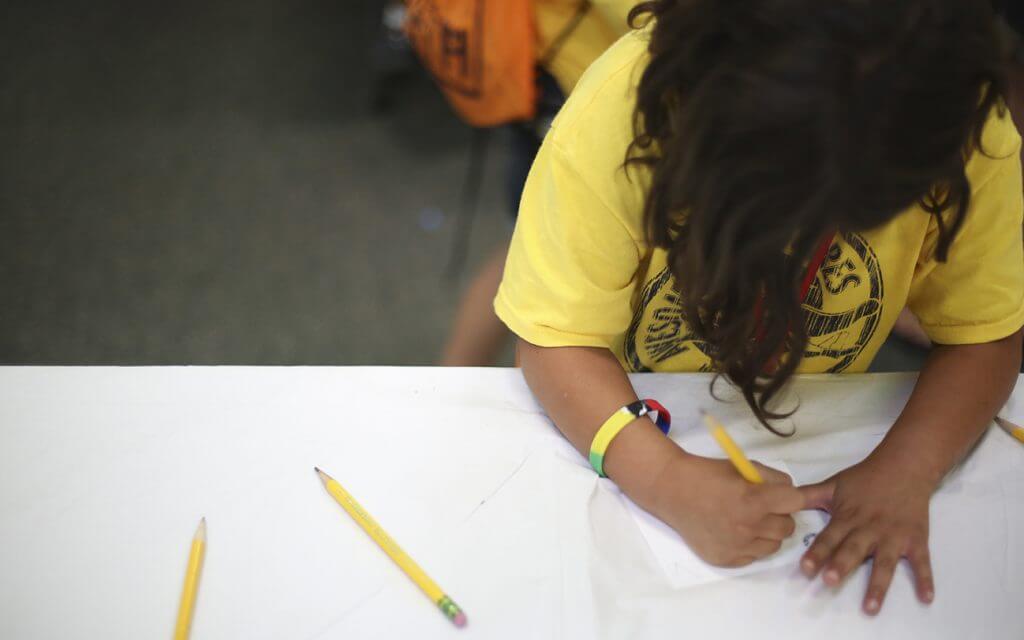5 Simple Ways to Make this School Year Great for Your Adopted Child

The start of school can be a time of anxiety for all young learners, but it can be especially tough for our adopted kids.
Curious students will often ask awkward questions. Simple school projects can inadvertently bring up hard things from the past.
“Are you adopted?”
It’s a question my youngest kids are asked a lot at school. They are, in fact, adopted from China. It doesn’t really bother my daughter anymore. She is used to the questions by now. My son will often tell new kids straight up that he is adopted before they have a chance to ask. This way he can avoid the question altogether.
As a parent, I want to protect my kids from the awkward and sometimes-painful questions and situations they face at school. But since my constant presence at their side would bring up an entirely new set of embarrassing questions, I have opted to take a different route. Below are a few simple ways I have tried to help my kids face potentially sticky situations they may encounter at school.
1. Talk about it
They probably can’t avoid the questions, but you can help them with the answers. Role-play. Practice asking questions so they can practice giving answers. Make sure your kids know that they get to choose what they want to share. “That is personal and, I don’t want to share it with you,” is an acceptable response. Brainstorm together how to answer tough questions, so your kids are prepared when asked.
(If you are looking for a resource to help direct conversations with your child on this topic, W.I.S.E. Up! Powerbook by Marilyn Schoettle might be a good option to check out.)
2. Team up with their Teacher
My sister sends an email to her kids’ teachers at the start of every school year. She introduces herself, her child and their family and includes a picture of their large, multi-racial family, so there are no surprises.
Your job is to advocate for your child. Ask your child’s teacher to alert you of any school projects that deal with family history or other potentially sensitive topics. If your kids don’t have baby pictures, tell their teachers so they can be sensitive in how they word potential requests. Be proactive in your communication and help your child’s teacher be as prepared as possible. Most teachers will love the information and do their best to be sensitive to your child. They want your child to have the best school experience possible. Give them the information they need to help this happen.
3. Ask Questions
“How was your day?” is fine, but digging deeper is better. Try to ask a lot of different kinds of questions. Ask about lunch. Ask about math. Ask about friends. Make these Q&A sessions light and make them the norm, so it doesn’t feel like an interrogation.
When tough situations come, it might be hard for your child to bring them up on their own. Grumpy or angry behavior after school is often normal as kids transition home from a long day at school. But, sometimes we need to pull on our emotional detective hat to determine whether their behavior is simply tiredness or if something more is behind it. Asking questions can be one way to do this. It helps us connect and, it helps our kids share the fun of their day and the hard when it happens.
4. Read together
Look for books about kids who feel different (these don’t have to be adoption related) and read them together. Stories can provide a springboard into great conversations and lead us into topics that would be harder to discuss and bring up on their own. Talking about a character’s struggle can be an indirect (and less threatening way) to help our children through their struggles.
5. Pray
Pray with your child. Pray for your child. Pray for their teachers. Pray for the students they will be interacting with on a day-to-day basis. You can’t go everywhere with your child, but God, their Father, can and does. Pray and trust that He’s got it under control.
Starting school can be a difficult transition. Add to the equation the uniqueness of adoption issues, multi-racial families, and over-curious kids, and it can feel overwhelming. Know you and your child are not alone. Prepare your child and talk with their teachers, ask questions, stay connected, and don’t forget to pray.
“Be strong and courageous. Do not be afraid; do not be discouraged, for the Lord your God will be with you wherever you go.”
Joshua 1:9, NIV
“Be strong and courageous. Do not be afraid; do not be discouraged, for the Lord your God will be with you wherever you go.” (Joshua 1:9, NIV)
Megan is a mom to six. She is also an avid reader.
CONSIDERING ANOTHER ADOPTION?
We’ve helped over 9,000 children come home through matching grants, interest-free loans, and fundraising tools.